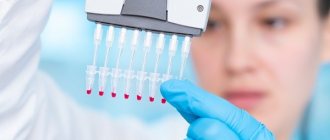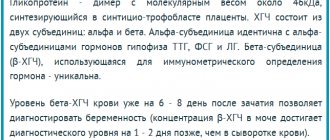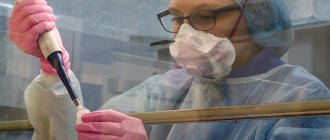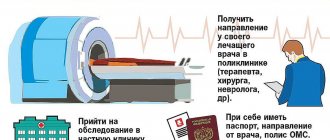For a standard test (testing one possible father with one child), a highly qualified laboratory should return DNA paternity test results within 1-2 business days of receiving all samples. While the best DNA labs can produce results in 1-2 days, others can take 3-12 weeks (or even more) to complete the test, and at a higher cost!
Waiting for results for this potentially life-changing test is stressful, and everyone, of course, wants a paternity test result sooner rather than later. Therefore, DDC provides ultra-fast service without sacrificing accuracy; Our testing fees for both at-home paternity tests and legal paternity tests include sample processing and result availability within two (2) business days, with the test report immediately posted on our website so our clients can immediately see the result. Our clients also have the option to choose, for an additional fee, tests with results available within one day or even on the same day the samples are delivered to the laboratory. For non-invasive prenatal paternity tests, results can be available to the customer in as little as three (3) business days.
What can increase the time it takes to receive a DNA paternity test result?
If you choose to work through child services in your county, you must meet certain criteria for a court-ordered DNA test. The time spent on such a process has decreased significantly in recent years, but there are still forms to process, a court order that must be sent from the court, coordinating the collection of DNA samples from all participants, and other documents that must be delivered before results can be obtained. may be available to the customer. There is no "RUSH" option during these procedures, so a long wait may be required.
Longest wait for DNA paternity testing: 4-6 weeks or more from county child services office - if you choose to use their help
The least you can expect is a DNA paternity test result: 1-2 days if you go to a private laboratory
Even if you just want to do a test at home and don't plan to use the results in court, some labs will take several weeks to deliver a report of the result.
Collection of material for paternity analysis
The standard material for a DNA test is epithelial cells; the material is collected using a simple swab with cotton swabs on the inside of the cheek. Material collection can be done:
- in our centers (Moscow, St. Petersburg);
- calling a specialist to your home (Moscow, St. Petersburg);
- yourself, using ordinary cotton swabs and paper envelopes or our kit, the material must be brought to us or sent by mail or courier service.
Instructions for collecting material
Paternity test order form
There is no need to worry that you will do something wrong - even if the material is not enough to extract DNA, we provide the right to retake the material free of charge.
Tips – How to get your DNA paternity test result as quickly as possible
Contact a DNA Lab Immediately: If you contact a DDC accredited DNA lab that offers a fast turnaround time for your test kit order and then immediately arranges for the collection of DNA samples from everyone involved (this applies to both home and legal tests), you can see your results the next day after the laboratory receives all DNA samples and accompanying documents. Imagine making the first call on Monday with results on Friday! The key to solving the problem is to contact the test coordinator directly by - you can agree on detailed specific information about what you want, how quickly you need it, and what your budget is.
Speed up your DNA collection kit and delivery to your lab: If you order a home kit from the DDC website, pay a little extra to get the kit delivered to you as quickly as possible. Postage for returning DNA samples to the lab is included with DDC kits, but you can also pay a little extra to have your sample swabs shipped by USPS and delivered overnight
Paternity test participants
Required: alleged father, child. Optional: mother, additional child, additional father.
Paternity can be determined with a very high degree of probability (>99.9%) even without a mother. However, mother's participation usually improves the accuracy of the analysis by several decimal places. Maternity is not questioned in a paternity test. If she is not the biological mother, she will not be included in the analysis result. If maternity is also in question and you want to calculate the probability of both paternity and maternity, you should test the mother as an additional participant - the putative mother.
Be careful: choose the best laboratory for your test
Fast delivery of DNA paternity test results is important, but it's not the only thing you need to worry about.
Beware of hidden fees: Some labs offer a low starting price but then add shipping and handling and other fees, making the test less expensive in the long run. Make sure you call the laboratory you choose and ask in detail about all possible hidden details , otherwise you may be disappointed.
Accuracy should never be sacrificed in order to speed up the process: if you get results quickly but are not 100% sure of the results, you have wasted your money. Before ordering a test, be sure to do your homework on the website of your chosen laboratory and ensure that you have made the right choice for such an important test. When you review lab information, look for AABB accreditation and other independent ratings that guarantee good service and accurate results.
Paternity test for court or embassy
If the analysis is needed for the courts of the USA, Europe and other countries, you can do a legal analysis.
In case the analysis is required for use in an embassy or court, identification of the individual is required. To do this, you must take with you for each participant: a passport or birth certificate of the participants.
It is possible to carry out such an analysis remotely; we are given sealed samples with a protocol for collecting the material. Legal analysis procedure
The Scientific Basis of a Paternity Test
The basis for the creation of a method for establishing paternity and similar genetic examinations was an understanding of the nature of human heredity. At conception, an embryo receives one half of its chromosomes from its mother and the other from its father. In this case, a random exchange of individual sections of male and female chromosomes occurs with each other, which determines the genetic uniqueness of each of the billions of living people.
So, although any child is unique, its genetic material contains a “mosaic” obtained by merging the chromosomes of the biological father and mother, respectively, a quarter from grandparents, ⅛ from great-grandparents, and so on. By comparing the corresponding parts of such a “mosaic” of the child’s DNA with the DNA of the putative parent, it is possible to establish or refute the fact of paternity, since in the case of kinship, almost all fragments will have identical values.
This comparison is made based on certain characteristics. The global scientific community has identified special regions of chromosomes called loci. They consist of repeating sequences of two or more nucleotide pairs and encode one or another hereditary information. Alphanumeric identification of such regions is accepted, for example, STR loci D7S820, CSF1PO, D19S433.
The most common system in the world is the American system for genetic analysis. It includes 14 STR loci. Considering that they are independently distributed on different chromosomes, this allows us to guarantee high accuracy of the results obtained.
It is worth noting that if a paternity test is performed on a pair of “alleged father” and “son”, then the analysis is performed on the Y chromosome, which is present only in males and is transmitted almost unchanged through the male line for many generations. Thus, the presence of discrepancies in its structure will make it possible to unequivocally refute paternity. In other cases (when it is necessary to establish paternity in relation to a daughter), analysis of autosomal loci (located on 22 pairs of non-sex chromosomes) is used.
Procedure for establishing paternity:
- first, a deoxyribonucleic acid molecule of the desired type is isolated from the obtained samples and split into fragments;
- using the polymerase chain reaction (PCR) method, the required section is copied (amplified) in order to increase the concentration of the desired fragments;
- the resulting material is analyzed to determine whether the alleles of the loci match the DNA of the second participant;
- a conclusion is made to establish or refute paternity with the issuance of an official laboratory report.
To eliminate human error, some laboratories perform this work with the help of two different groups of researchers, who then compare the results with each other.
Establishing paternity
Fashion test or vital necessity
Of course, you do not doubt your wife’s marital fidelity and are confident in your paternity, but like many friends and acquaintances, you turned to our clinic to conduct a DNA paternity test for greater confidence? We understand you perfectly!
And if you have doubts, or are absolutely sure that the child is not yours, but you constantly listen to complaints, pay child support? Contact us - we will help!
Self-DNA test
Order a DNA test
By ordering a DNA test in our center, you receive a 100% guarantee of results, full documentary evidence and a reasonable price.

LICENSE to carry out medical activities
Conducting a DNA test to establish paternity in a licensed laboratory for clients in the Russian Federation and the CIS: low prices, guarantee of safety and accuracy of the result
In modern society, established couples first try to make a career, acquire their own home, and only then think about having a child. Researchers note that gradually the age at which a woman consciously and purposefully becomes a mother for the first time is moving closer to 25-30 years.
Men become fathers even later – closer to 35. These statistics cannot be considered negative. On the contrary, she demonstrates a more conscious, responsible approach to procreation, raising heirs, and the desire to create for them decent living conditions and a good education.
Researchers also note the existence of a truly negative trend in Russia. We are talking about a large number of sexual relationships, changing partners, even when trying to live together with one. This often results in an unwanted pregnancy.
With such a lifestyle, it is difficult for a man to be 100% sure of paternity when children are born. There is no guarantee either in civil or official marriage!
Experts who professionally engage in DNA paternity testing note that mothers today are not always sure who gave birth to their child.
DNA test to establish paternity: in what situations is the study carried out?
If you have any doubts about paternity, contact the licensed DNA testing laboratory DNA24. As a rule, this confirmation is required when registering a marriage or inheritance. According to statistics, up to 10% of children in the Russian Federation and the CIS are raised in marriage by fathers who are not genetically related to their heirs.
- There are often situations when a woman is ready and eager to become a mother, but cannot become pregnant through no fault of her own. The husband refuses to undergo examination, depriving her of the happiness of motherhood.
- Representatives of the stronger sex, according to psychologists, find it much more difficult to admit the presence of any pathologies than the fair half of humanity.
- A woman who fails to persuade her husband to undergo, often simple, treatment, ends up having to cheat on her husband and give birth to any healthy man.
- As children grow older, discrepancies become apparent. Doubts lead to the decision to conduct a DNA paternity test.
It is not uncommon for our laboratory to be brought to court. During a divorce, many fathers want to be sure that they will pay child support for their own child. This is especially typical for divorces in which the amount of alimony is impressive. It's not just men who have doubts about paternity. They contact us:
- mothers who are not sure who the father of their child is;
- grandparents to establish kinship with grandchildren;
- other relatives who want to receive 100% confirmation of relationship;
- everyone who seeks to find out the truth and eliminate suspicions that they have become victims in some kind of game, for example, for an inheritance.
Do you need the truth? Send genetic material for research! DNA24 laboratory specialists will complete the task correctly, completely confidentially, in the shortest possible time.
About the DNA24 laboratory: traditional capabilities and unique offers for self-testing
The DNA24 laboratory has all the necessary licenses to conduct independent examinations, including establishing kinship. According to statistics, up to 80% of our studies are DNA tests to establish paternity.
DNA24 has more than 191 representative offices in 292 cities in Russia and the CIS.
During the laboratory's activities, more than 250 thousand samples were examined.
We are official partners of the TV show “Wait for me.”
We offer different options for conducting paternity tests for everyone who lives in Russia and the CIS countries and seeks to get the result directly from the laboratory, without the participation of intermediaries. You will be able to pass the test, regardless of the remoteness of the region. Please send us a request for consultation in advance. You can get it by phone or in person at our medical center.
DNA testing options
| Through one of our representative offices in Russian cities | Self-DNA test without visiting medical centers |
| Ø come to the selected medical center in one of the cities of the Russian Federation; | Ø after a remote consultation, collect samples; |
| Ø get advice; | Ø send the material by mail or courier; |
| Ø submit samples to the laboratory; | Ø the manager confirms receipt; |
| Ø pay for the service; | Ø pay for the service; |
| Ø Receive the result in electronic or printed form in 4 days. | Ø You receive the result in electronic form (e-mail) in 4 days. |
We understand how convenient remote services are for our clients today, so we have developed a clear interaction mechanism. We continue to improve it, connecting the latest means of communication, transport logistics and others. As a result, the speed of completing a task in this format is in no way inferior to the traditional one.
A remote DNA paternity test is suitable for everyone, regardless of agreement or disagreement, or the communication capabilities of the other party!
After the analysis, the results are deciphered, the conclusions are recorded in a specialized program, on standard forms. The probability of paternity is either excluded or indicated as a percentage (99.9%).
We cannot give a 100% result after the study. This is due to the requirement of maximum objectivity, that is, we do not exclude the possibility that the father has a twin. Cases are extremely rare, but they do happen in our practice.
What material to collect for a DNA paternity test
Genetic information is embedded in each of us. It is contained in the germ cells involved in the conception of a child. The heir receives the genes of his father and mother 50/50. In this case, chromosomes are combined randomly and appear spontaneously. External data is not an indicator at all, but it worries many.
Laboratory testing compares sections of the DNA of the child and the man whose paternity needs to be confirmed or refuted. The accuracy of the matches is very high, but you will have to carefully approach the issue of obtaining genetic material from the father and child.
No less careful consideration must be given to the issue of transferring this material to the laboratory. Transportation is an important stage on which the result largely depends: substituting material is a criminal act, but we are faced with similar cases.
The ideal option is to receive material from three people - father, mother, child. This will allow for a more in-depth analysis and eliminate the possibility of a random coincidence. We accept blood, nails, hair, saliva, and some other samples as biomaterial. You will be told about this during your consultation. The most common option is mucosal cells.
The material is taken from the inner surface of the cheek using the most ordinary cotton swab. Most likely, you have seen the process in some TV show, including our partners “Wait for Me.”
At what age should a child be tested for paternity?
One of the most pressing issues is the age of the child. It is asked by almost all fathers, including those who just found out about their wife or girlfriend’s pregnancy. We answer: technology has advanced so much that paternity can be determined before the birth of a child, during pregnancy.
No need to worry: amniocentesis, that is, a puncture of the anterior abdominal wall and uterus to collect amniotic fluid, which was previously practiced, is a thing of the distant past! It wasn't safe.
Scientists today isolate DNA from cells and read the information that the molecule contains. This process is so well developed that it allows you to decipher any information about a person!
In the case of paternity determination, in-depth scientific testing is not required. Everything is much simpler here! Fetal DKN is isolated from a woman’s blood from the 9th week of pregnancy, so that the decision to establish paternity can not be delayed.
If you choose a remote format for conducting the study, in this case you will have to contact a reliable clinic where the appropriate blood sampling is carried out.
Legal aspects of the study
Let us remind you about the legal side of a DNA test to establish paternity. It will have legal force only upon official collection of the test samples. If there is no confirmation, you receive the result personally for yourself.
In the future, you will be able to repeat the test with official confirmation of the ownership of the material if the second party disagrees during pre-trial and trial proceedings.
To legally confirm paternity, 14 identical DNA sections are identified. This is enough, but if necessary, you can order a more in-depth analysis of 20-30 fragments. In this case, there will be no doubt about paternity.
Cost of DNA paternity testing in a licensed laboratory and features of interaction with clients
Prices for conducting independent examinations in the licensed DNA24 laboratory are among the lowest in the specialized market in Russia and the CIS. When conducting paternity tests, you will pay according to the price list:
Traditional testing – 6900 rub.
Self-DNA test – 5900 rub.
Performing a forensic DNA test – 12,700 rubles.
If an urgent analysis is required, discuss the cost and timing with your manager. Discounts are possible for repeat requests. We will provide legal advice free of charge. To do this, you just need to call us or write a request online.
- Is it possible to take a DNA paternity test in our laboratory for free? Yes, if you are a disinterested party. In this case, the payment is borne by the initiator of the study. When testing is carried out in court, payment will be borne by the plaintiff. The state does not pay for these tests.
- Is it possible to get results without specifying passport data, full name and other parameters? Yes it is possible. We are always sensitive to the privacy of our clients and maintain confidentiality. The company has a ban on disclosing customer data.
- Is it possible to conduct an examination if the samples are located in different cities or towns ? Yes, of course, but at the same time you will have to obtain the consent of the second party who did not initiate the study, monitor the sending of the samples, and make sure that they were taken from the person being tested.
We offer payment for DNA24 laboratory services in a convenient format of your choice - by card directly on the website, by receipt in any bank, through Sberbank online. We guarantee 100% accuracy of research due to double control of all examinations by two independent groups of experts.
Call or write to us if you are faced with the question of conducting a high-quality DNA study to establish paternity with a guarantee of safety and accuracy of the result!










